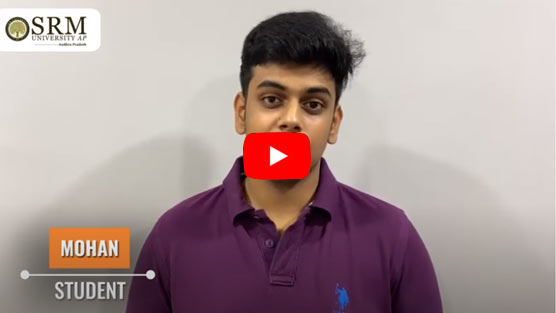Know how SRM AP ensures safety while re-inventing pedagogy to remain unbaffled by the spread of Covid-19
SRM AP has joined the combat against the unprecedented global crisis in the form of Covid-19 by taking various initiatives to ensure the safety of the students, faculty, and staff while remaining uncompromising with the learning graph of the beloved students.
All mass gatherings were prohibited before the declaration of the lockdown, and awareness campaigns were organized before the devastating disease unfolded vividly across India. Proactively, the university requested the students to move to their homes on the 16th of March, 2020. Instead of taking the risk of sending back the international students, the management of SRM AP invited them to stay back while arranging for their weekly health check-up by the in-house medical practitioner, Dr. Lakshmi Rajyam. At the same time, masks were distributed to the faculty and the staff before declaring a prolonged work from home for them, diligently following the rules laid out by the government. The university swiftly moved to online teaching platforms within a week for conducting classes, where the students applauded the unadulterated commitment of the management and the faculty by exhibiting higher attendance and more active participation.
SRM AP gears up to fight against the advent of Corona Virus, or COVID-19 in India. This public awareness lecture held on 06.03.2020 (Friday) was organized by the department of Biology. The lecture session was coordinated by Prof. Jayaseelan Murugaiyan, Head of the Biology/Biotechnology Department. The lecture was split into 3 sessions- "Biology of Coronavirus" by Prof. C. Durga Rao, Dean-SLABS, "Coronavirus diagnosis" by Prof. Jayaseelan Murugaiyan, Head of the Biology/Biotechnology Department, and "Precautionary measures and handling the infection" by Dr. Lakshmi Rajyam, Medical Officer.
Biology of Coronavirus
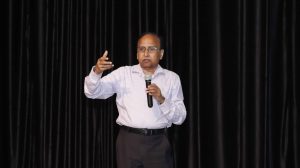
Prof. C. Durga Rao explains that a virus becomes active only when it enters a living body. He informs, “Generally, viruses are specific to host bodies (species of animals). However, at times they mutate and are able to transmit to human bodies, known as zoonotic transmission.
Coronavirus is one such virus that was initiated from bats in China. The immune system of humans not being exposed to this form of mutated Corona Virus before fails to combat against it.
He explains that scientists have fought against viruses for centuries. Vaccines have been developed for diseases such as smallpox, polio, etc. Smallpox is the only virus-infected disease that has been eradicated from the world. However, it takes more than a decade to develop vaccines for a particular virus. Coronavirus has been mutating from time to time, further enhancing the difficulty to invent vaccines for the same.
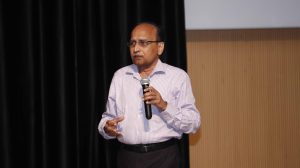
Dr. Rao says, “Coronavirus is not new to us. It has repeatedly surfaced in various forms”.
Dr. Rao adds that Coronavirus disrupts the respiratory function as our lungs weaken while our immune system fights against COVID 19. “The host body tries to neutralize the virus, which fights back and tries to inhibit host protein synthesis and hijack the system for its own protein synthesis, crippling the cells who were attacking the virus.” People with respiratory disorders, diabetes, and cancer are at higher risk of developing severe disease and death. The virus affects males more in comparison to women. Children below 10 years of age and pregnant women are less susceptible to the virus whereas males above 30 years are most likely to acquire the disease.
Dr. Rao persuades to keep calm saying that, “Although the virus spreads like wildfire, the mortality rate on the average is only 2.3%, together as a conscious community we can combat the situation. “
Coronavirus diagnosis

Prof. Jayaseelan explained the historical time line of Coronavirus starting from 1960’s to present day variant COVID 19. The challenges lie in identification and differentiation of common Human Coronavirus and COVID 19.
He adds, “Being a new type of virus, identifying the parameters to detect the virus is difficult. Having a relevant diagnostic tool and validating it in a short duration remains a challenge.” Unlike earlier outbreaks, this time viral genome is already made freely available at public repository National Centre for Biotechnology Information (NCBI). Prof. Jayaseelan emphasized the need for reach of diagnostic kits to the clinics faster than the spread of virus itself.
He emphasized the race between various diagnostic companies and explained that the test kits were approved by the government agencies in a record time. Prof. Jayaseelan highlighted the different countries such as China, Germany, Thailand, US and France have already released their protocol for detection of viral gene markers from the human samples. The World Health Organization (WHO) already released the guidelines on laboratory testing of Coronavirus.

The diagnosis can be made with three different approaches, viz, genome material or viral gene of the virus from nasal, oral swabs, proteins of virus and antibodies developed by the host body. Prof. Jayaseelan also explained about five sampling methods and precautions needs to be taken care during sampling, logistics and while working at diagnostic laboratories. The professor also informs us that the diagnostic process includes a test using three specimens - lower respiratory, upper respiratory and serum specimen. The immediate tests include a blanket test for all variants of coronavirus, including common flu, and gene sequencing test that locates the marker for the novel coronavirus.
As of now, 15 government laboratories are operating in India to test for Coronavirus. These laboratories are under the umbrella of National Centre for Disease Control (NCDC), Delhi, and Indian Council of Medical Research (ICMR), Alappuzha, Bengaluru, Hyderabad, and Mumbai. All the laboratories are coordinated by the National Institute of Virology, Pune.
Prof Jayaseelan emphasized not to blindly believe social media messages on Coronavirus.
Precautionary measures and handling the infection
Dr. Lakshmi Rajyam says that the first symptom of Corina Virus is a fever. She explained that the symptoms of COVID-19 - fever, cough, sneeze, breathing trouble, are similar to that of common cold.
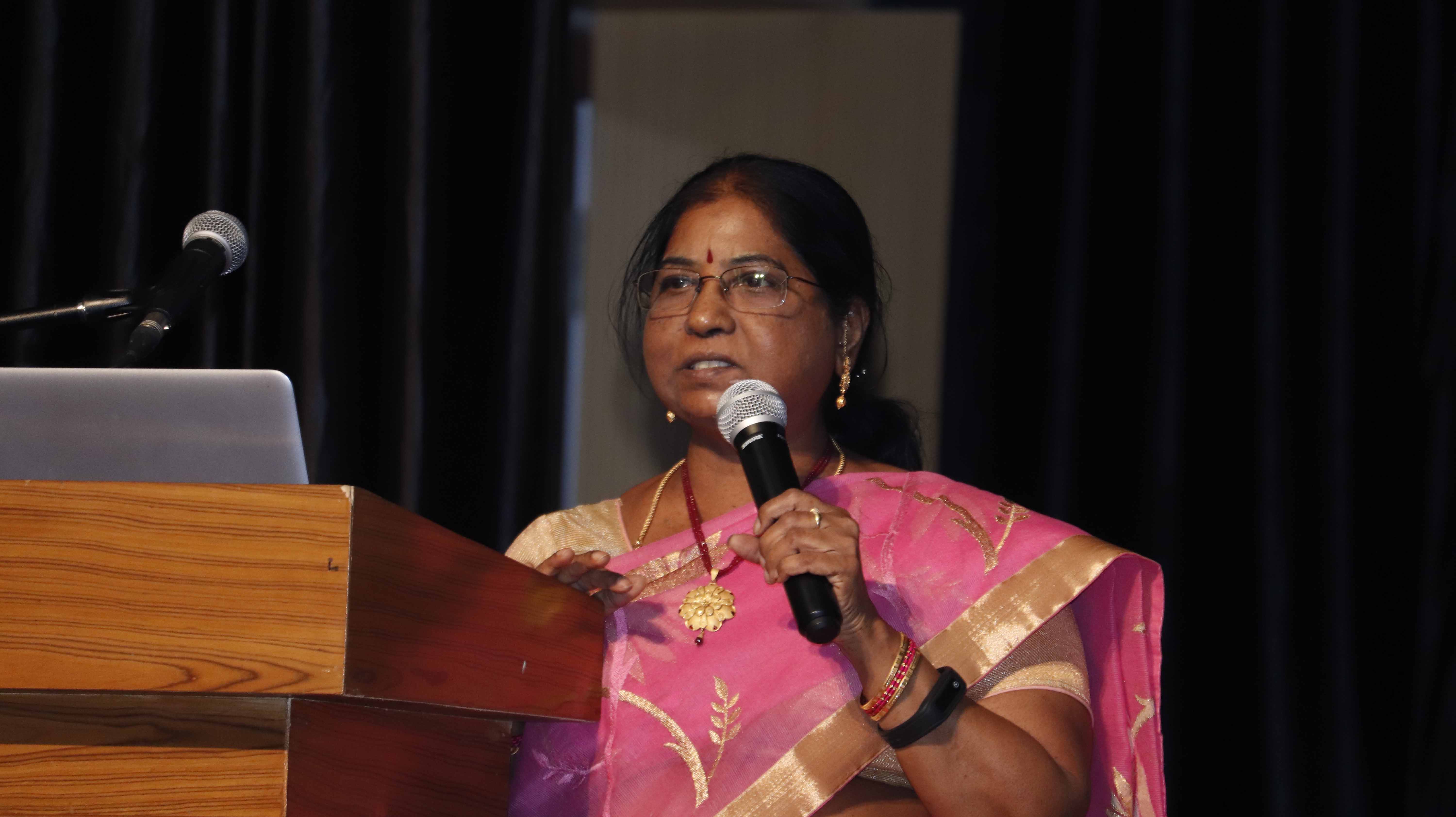
“As early as we can detect the cases, the more we can reduce the mortality rate”, says the physician. She discusses, “The concern is because there is no treatment of any virus other than vaccination, and coronavirus is no exception. A human body has no immunity against this virus as it is unaware of its traits. This virus is extremely contagious and spreads through human touch, air, and mucus droplets.”
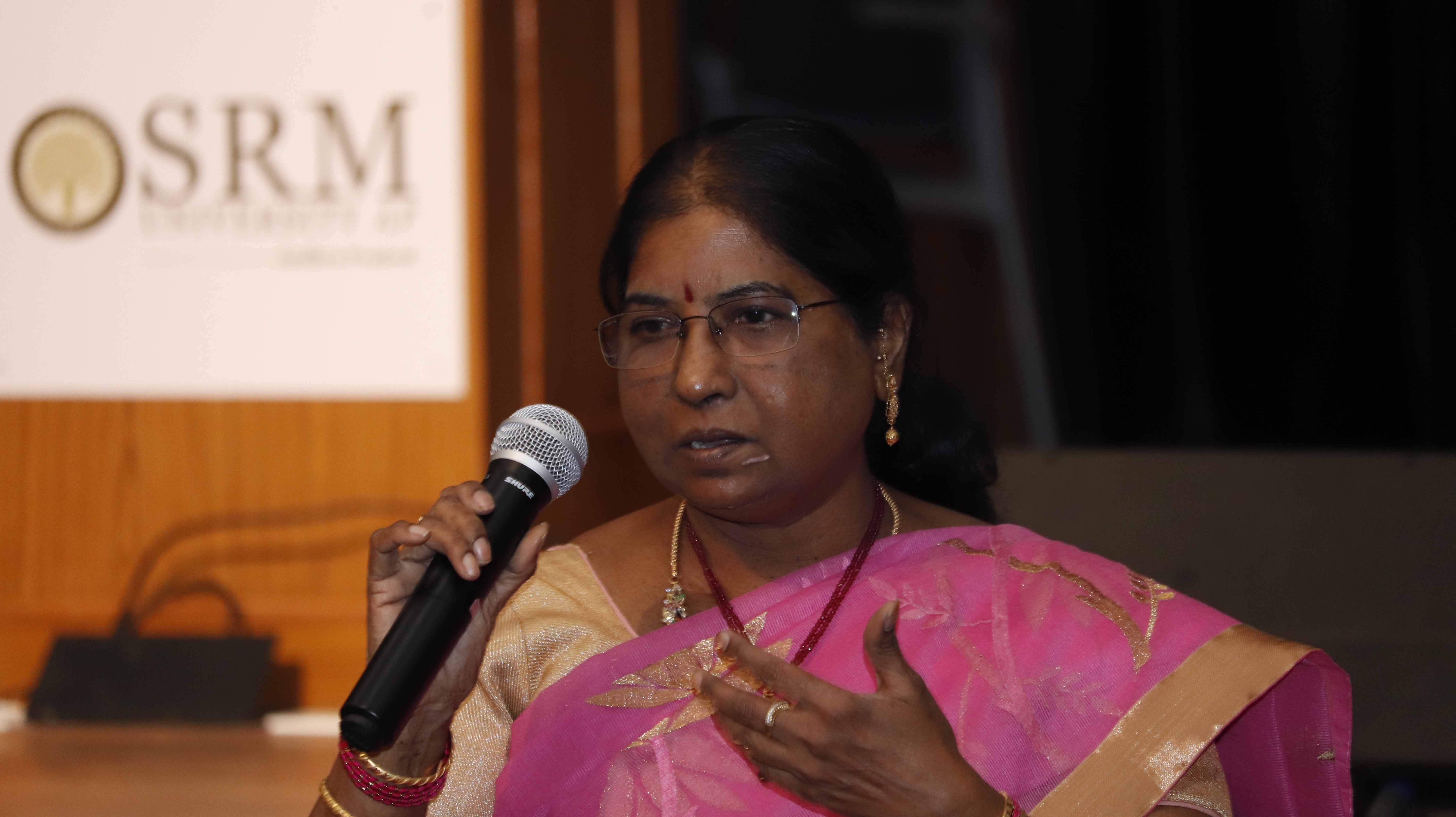
Dr. Lakshmi urges, “Once symptoms appear, immediately take the test. If the results are positive, the test needs to be repeated every 2-3 weeks till the report shows negative results.”
Precautions against this disease have been constructed in an acronym, interestingly the name of the place from where it was originated: WUHAN –
W - Washing hands often,
U - Use masks properly,
H - Have temperature checked regularly,
A - Avoid large crowds,
N - Never touch face without washing hands
SRM-AP Coronavirus Helpdesk: helpdesk@srmap.edu.in
-----------------------------------------
Exclusive helpdesk for the Students, Parents, Faculty and Staff of SRM-AP for any queries and support.
WHO on Covid - 19
Check this website for more information on COVID-19
Ministry of Health and Family Welfare Behavioural Health: Pschyo-Social Toll Free Helpline- 0804611007
COVID-19 Safety Measures and Guidelines (Part-I)
COVID-19 Safety Measures and Guidelines (Part-II)
COVID-19 Safety Measures and Guidelines (Part-III)


